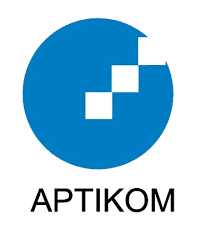Intelligent Tutoring System Design Using Markov Decision Process
DOI:
https://doi.org/10.18196/eist.v3i1.16888Keywords:
application, courseLab, markov decision process, intelligent tutoring systemAbstract
Class learning is a teaching and learning activity involving both teachers and students. Students in the class have different levels of intelligence, divided into three categories: lowest, average, and most intelligent. Teachers usually pay less attention to less intelligent students. Consider a student who is not intelligent enough to remain in school. However, if a smart student is required to repeat content he already comprehends, he will become bored. Therefore, this study developed an intelligent tutoring system (ITS)-based learning application with a Markov decision process (MDP). The combination of ITS and MDP enabled intelligence to determine the most appropriate subsequent step by delivering tutorials and examination questions that guide students to efficiently attain intelligence levels.
References
Bloom, B. S. (1968). Learning for Mastery. University of California.
Dewi, Y. F. (2020, August 18). “Meaningful Learning From Home through the DaSi AsSi Learning Model”. (In Indonesian) Retrieved from LPMP JAMBI: https://lpmpjambi.id
Howard, R. (1960). Markov Processes. In Dynamic Programming and Markov Processes (p.3). Cambridge: The Technology Press of The Massachusetts Institute of Technology.
SHUTE, V. J., & JOSEPH, P. (1994). Intelligent tutoring systems: Past, present, and future(Interim Report, Apr. 1993- Apr. 1994).
Shen, S., & Mostafavi, B. (2018). Exploring Induced Pedagogical Strategies Through a Markov Decision Process Framework: Lessons Learned. Journal of Educational Data Mining, Volume 10, No 3.
Rowe, J. (2013). Narrative-Centered Tutorial Planning with Concurrent Markov Decision Processes.
Vanlehn, K. (2006). International Journal of Artificial Intelligence in Education. 227-265.
Mott, B. W., & Lester, J. C. (2006). ITS’06: Proceedings of the 8th international conference on Intelligent Tutoring Systems. Taipei City Government: Springer-Verlag.
Purbohadi, D., Nugroho, L., Santosa, I., & Kumara, A. (2014). Design of Intelligent Tutoring System for Mastery Learning. Yogyakarta: American Scientific Publishers.
King, M. Y., & D’Inverno, M. (2016). Stimulating collaborative activity in online social learning.



